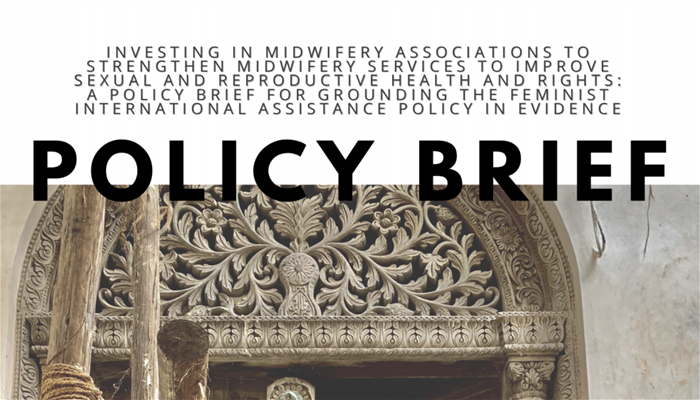Midwifery association strengthening critical to improving sexual reproductive health and rights

Led by MMRC Adjunct Scientists and Fellows, Drs. Cristina Mattison and Kirsty Bourret have spent the last two years exploring the role of midwifery associations in the integration of midwifery in health systems. With funding from Canadian Association of Midwives and Mitacs (Accelerate), they conducted a qualitative systematic review complemented by key informant interviews, focus groups, observations, and document review to generate a theoretical framework for midwifery association strengthening. Findings from this research were recently published in BMJ Global Health.
Both Mattison and Bourret were recipients of Global Affairs Canada’s International Policy Ideas Challenge, where they created a policy brief based on findings from the above research to ground Canada’s Feminist International Assistance Policy (FIAP) in evidence. Core recommendations from the policy brief to support midwifery associations to improve sexual and reproductive health and rights include:
- ensuring midwifery associations are embedded in projects that strengthen the midwifery profession and promote access to SRHR;
- incorporating equity and feminist frameworks for program implementation and evaluation approaches that promote equity and challenge power imbalances;
- applying a gender lens to the capacity building of midwifery associations including understanding the impacts of ethnicity and race;
- expanding the FIAP Action Area Key Performance Indicators to include a broader set of indicators; and
- increasing support for midwifery associations to actively engage in program implementation.
The researchers developed a checklist (available in both French and English) as a practical tool for midwifery associations to assess the current status of their civil society organization, as well as to identify areas for growth.
“Our findings highlight the important role that midwifery associations play as primarily women-membered and women-led organizations. They act as the glue for the profession and are a key component to meeting the Sustainable Development Goals related to promoting wellbeing, gender equality and empowering women and girls.”
Watch their presentation in English and in French.
The policy brief was produced for the International Policy Ideas Challenge funded by Global Affairs Canada and Social Sciences and Humanities Research Council of Canada, Government of Canada. The views expressed in the policy brief are the views of the authors and should not be taken to represent the views of Global Affairs Canada.
Read more about this project here.
News Article